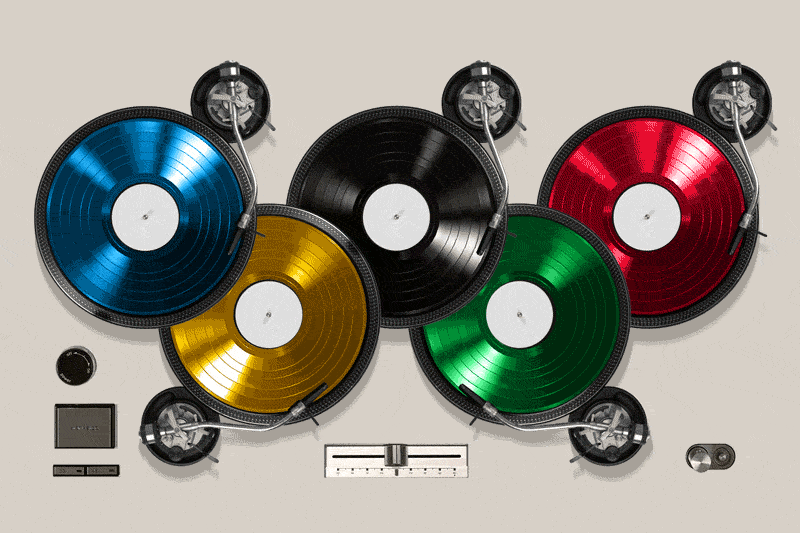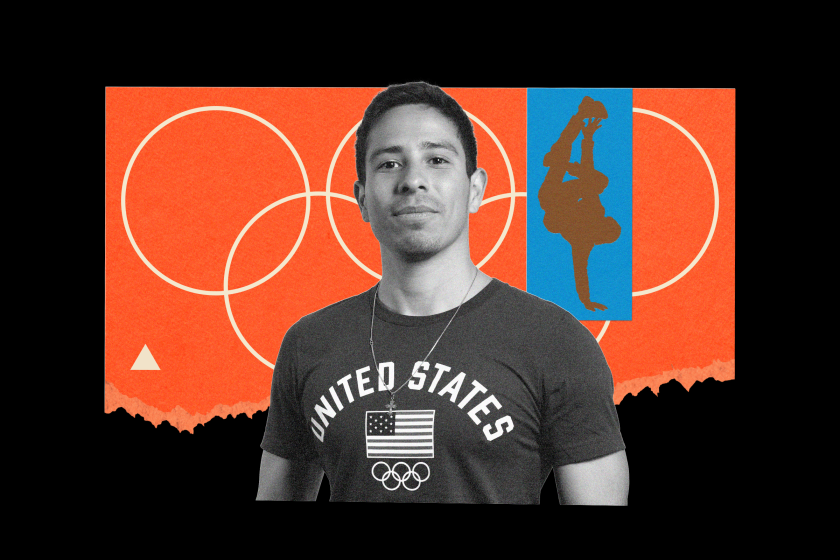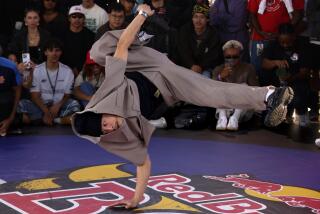
- Share via
PARIS — When the battles begin, when the time comes to throw down, look for Victor Montalvo to bring his classic moves.
That free-flowing style. His smooth transitions from top rock to spins.
With the sport of breaking — don’t call it breakdancing — set to debut at the 2024 Summer Games this week, the Los Angeles B-boy hopes to win gold while also scoring points in the court of public opinion.
“I feel like it’s going to bring breaking to a different audience,” he says of the Olympics. “Like, a broader audience.”
Some sports — gymnastics and swimming, basketball and track — don’t have to worry about getting noticed. But for newer and smaller events, even some traditional ones, competition is about more than just medals.
Breaking is entering the Olympic spotlight this week in Paris. DJ Fleg will be one of two DJs playing an important role supporting competitors as they face off.
It’s about survival, about generating the television ratings and ticket sales to keep hold of their coveted spots on the Olympic program.
Skateboarding and surfing hit it big in their first try at the Tokyo Games three years ago, securing a place — at least for now — on the roster. Meanwhile, the likes of wrestling and boxing have faced elimination. Same with modern pentathlon, where Jessica Savner of the U.S. muses about finding “better ways to market and show our sport.”
The situation for breaking, which begins competition on Friday, is somewhat different because the 2028 Summer Games in Los Angeles have already decided not to include it.
Still, Montalvo and his fellow breakers say they feel the need to perform for something beyond individual glory.

Olympic sports have come and gone during the last century.
Who remembers that tug-of-war, rope climb and live pigeon shooting were once part of the Games? Baseball and softball are returning in 2028 after a brief departure, but their long-term status remains uncertain.
Being included can mean millions upon millions in broadcast contracts and corporate sponsorships.
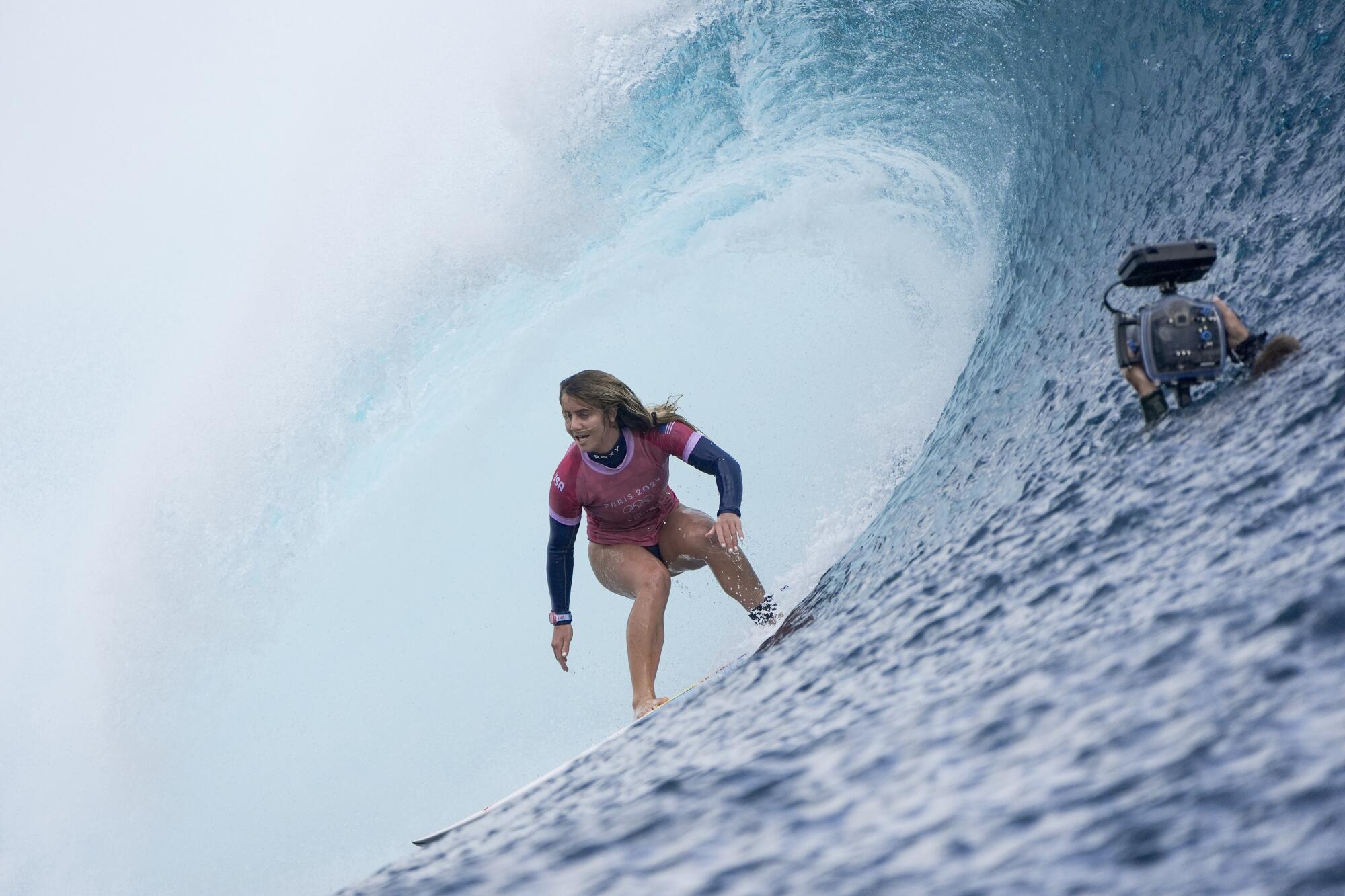
“It’s the golden ticket,” said Mark Dyreson, a sports historian at Penn State. “Getting onto the Olympic program can make a difference between your sport struggling and hitting the jackpot financially.”
The International Olympic Committee monitors television numbers and demographics, with an emphasis on attracting younger audiences. Thus the addition of skating, surfing and, before them, snowboarding.
“They want the hot sports,” Dyreson said. “They want what TV wants.”
New sports can wrangle an audition by way of a policy that allows each host city to propose additions to the program. Newcomers receive a one-time pass, no guarantee of sticking around.
Olympic leaders have a say in all this, which helps explain why cricket will debut in 2028. Hardly a staple of the Southern California sports scene, it gives the IOC an entree into the South Asian market.
Breaking, which traces its roots to New York in the late 1960s, was added this summer because of its popularity in France.
The competition will begin with a round-robin format in which breakers go head-to-head in “battles,” working their way through basic footwork, power moves and airborne tricks.
Judges will watch for technique, repertoire, execution, musicality and originality, but instead of scoring the routines — as in diving or gymnastics — they will simply choose a winner. The top competitors advance to a knockout stage.
Tony Estanguet, president of the Paris 2024 organizing committee, said: “Our ambition from the outset has been to highlight what has made the Games so strong for thirty-two Olympiads — the diversity of sports, the emotion of performances — while seizing the opportunity offered by the IOC to enrich this offering and propose a new dimension.”
Asked about making the program, French B-boy Mounir Biba responded: “It only remains for us to live up to the honor bestowed upon us.”

Last year, Olympic officials met to decide the fate of modern pentathlon, a sport that for more than a century has combined running, swimming, fencing, shooting and equestrian show jumping.
Hardly a premier event, it suffered a critical blow at the Tokyo Games when television cameras caught German coach Kim Raisner punching an unruly horse during the riding competition.
The sport’s international federation earned a temporary reprieve after voting to phase out jumping over the next four years and replace it with a segment in which athletes will traverse an obstacle course.
Victor Montalvo, along with other members of Team USA, will dance in every which way in hopes for a medal at the Olympics’ first breaking competition.
“We are not forgetting our past, our heritage, but our goal is the future,” federation president Klaus Schormann said.
Sport climbing has also changed, but under different circumstances. Hoping to capitalize on a successful debut in Tokyo, officials will keep the boulder and lead formats as a combined event, but hold speed climbing separately.
With two racers scrambling side-by-side up a 50-foot wall, the speed event is made for television. Brooke Raboutou of the U.S. envisions her sport continuing to gain traction.
“I think more climbing gyms are coming up,” she said. “The Olympics just bring a lot more viewers and a lot more people.”

The B-boys and B-girls have mixed emotions about Paris.
Sunny Choi of the U.S. calls it “bittersweet” that her sport will not be part of the Los Angeles Olympics. Montalvo says he is “bummed” about the one-and-done status. But the next couple of days will offer the chance to show the world a few things.
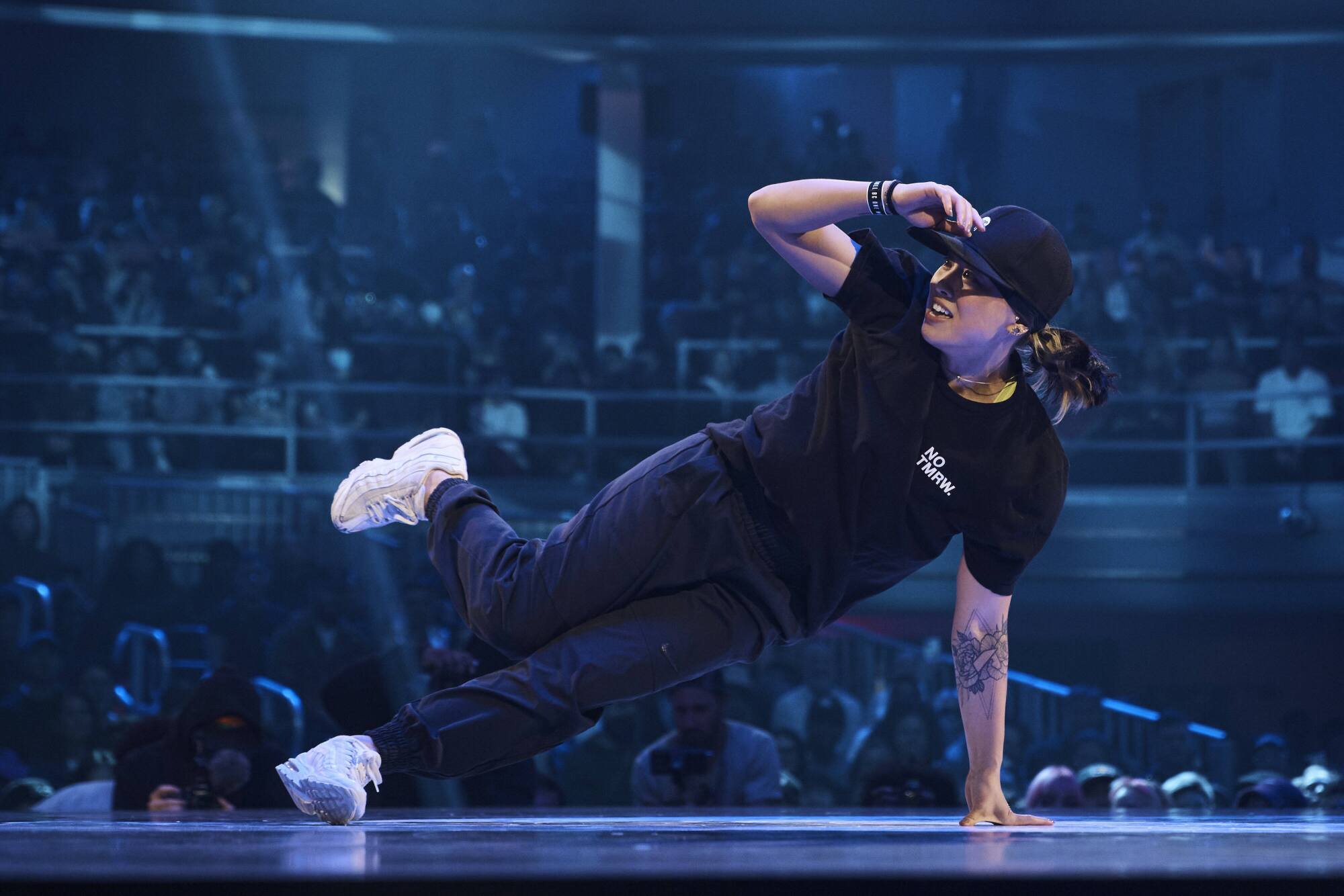
That breaking involves strategy and degree of difficulty. That it can be highly competitive — if one breaker goes big, watch for the other to adjust on the fly, improvising trickier moves.
“This is a huge opportunity to bring eyes, bring awareness, bring resources, corporate sponsors,” said Jeffrey “Jeffro” Louis of the U.S. ”This is an opportunity to build [the sport] up.”
And maybe, just maybe, the breakers can put on a show that will pave the way for their return.
“People are going to see how amazing breaking is,” Montalvo said. “Hopefully it’s back in 2032.”
More to Read
Go beyond the scoreboard
Get the latest on L.A.'s teams in the daily Sports Report newsletter.
You may occasionally receive promotional content from the Los Angeles Times.

